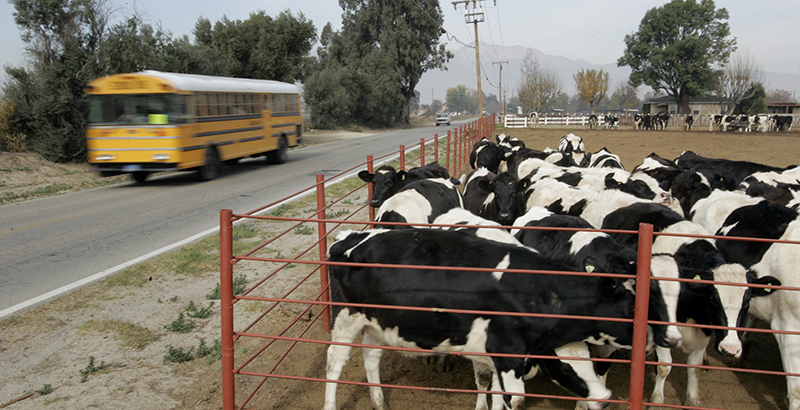How California’s Rural Education Network Is Creating an Online Hub to Better Connect Remote Schools and Empower Teachers to Share Experiences, Strategies & Classroom Materials

Educators in rural communities face unique challenges, but they also have special strengths that aren’t always found in urban and suburban schools. In California,where 60 percent of districts are in towns or rural areas, a new project is leveraging those strengths to help educators connect with one another and get the support they need.
The California Rural Ed Network started in 2017 but recently launched an online resource bank that offers free informational and professional development articles about topics relevant to rural educators, such as teacher recruitment and adverse childhood experiences. The bank includes materials that were handpicked by experts as well as user-generated content, which researchers are in the process of vetting and verifying, said Rindy DeVoll, the network’s chair and a former teacher in Tehama County.
“We knew that we wanted the resources to be research-based,” DeVoll said, but they also wanted to highlight and share effective practices rural educators are already using right away.
The idea for the network came about while DeVoll and some of her colleagues were traveling around the state to help rural schools implement a new approach to education called Multi-Tiered Systems of Support. They realized rural educators needed more support and a way to share best practices.
DeVoll helped create the network, then took over as chair when its founder retired last year. She’s especially excited about giving rural students the opportunity to talk about their own experiences.
“That’s the other thing we know about rural communities — there are some great stories,” she said. “And when people hear our stories, then maybe there’s some influence in the way that we serve students in education.”
The network is composed of a steering committee and an advisory committee of educators and advocates from across the state, plus a panel of researchers. The group hosted a summit on rural education last year in Sacramento and surveyed educators and parents to gauge their concerns and inform the network’s priorities.
The Butte County Office of Education manages the network and hosts the content on its Digital Chalkboard website, which contains hundreds of other resources for teachers. So far, funding for the initiative has come from the Butte and Orange county offices of education, DeVoll said.
The resource bank launched Oct. 1 and already has dozens of resources, which are available for free to anyone who visits the site. But it’s just one part of the network’s mission, DeVoll said. The steering committee is currently planning for its next summit in the spring, seeking ways to elevate student voices from rural communities, and connecting with state and national organizations to form partnerships.
By uniting rural schools and district offices, the network will bring attention to inequalities that disproportionately affect rural education systems. For example, rural districts often lose when they have to compete for grant money against larger districts that serve more students.
DeVoll said she hopes the network will become a state leader for rural education and eventually a national model.
“We are trying to amplify the voice of our rural schools and communities,” she said. “And we just want to advocate for the educators and provide resources for them based on our unique features” as rural communities.
Get stories like these delivered straight to your inbox. Sign up for The 74 Newsletter

;)
